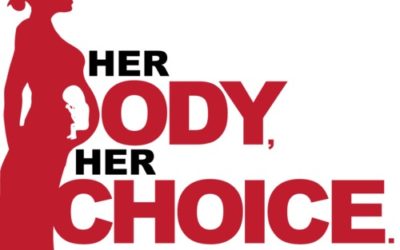THE CREDIT FOR CARING ACT:
What You Need to Know
Background: On May 17, 2017, this bi-partisan proposed bill introduced in the U.S. House and Senate called the Credit for Caring Act, (S.1151/H.R. 2505) would amend the Internal Revenue Code to create a federal, nonrefundable tax credit of up to $3,000 for family caregivers who work while also financially help and assist in caring for their parents, spouses, children with disabilities or other loved ones. Introduced by Senators Joni Ernst (R-IA), Michael Bennet (D-CO), Shelley Moore Capito (R-WV) and Elizabeth Warren (D-MA), and Representatives Tom Reed (R-NY) and Linda Sánchez (D-CA), this bill is an important step toward supporting caregivers that work while caring for family members. AARP and other national organizations have endorsed the Credit for Caring Act. This bill would help defray some of the costs to family caregivers, 78 percent of whom use their own money to assist with caring for a loved one, and help ensure that they can continue working.
Issue: Today, over 40 million Americans provide long term assistance and care for adult loved ones today. Unpaid caregiver costs are estimated to be valued at a staggering $470 billion dollars annually (more than total Medicaid spending in 2013). In addition, an estimated 3.7 million family caregivers provide care to a child younger than 18 with a medical, behavioral or other condition or disability, and 6.5 million family caregivers assist both adults and children. Family caregivers as-sist with necessary daily life functions, including bathing and dressing, preparing meals, manag-ing medications, driving to appointments, and managing finances. (Source: AARP 2016 Survey Report)
What will the Bill Do?
- The Bill would give eligible family caregivers the opportunity to receive a tax credit for 30 percent of the qualified expenses above $2,000 paid to help a loved one, up to a maximum credit amount of $3,000 if the caregiver meets the following criteria:
- Is a spouse, adult child, parent or another relation named under the “dependent” definition
- Helps a loved one, of any age, who meets certain functional or cognitive limitations or other requirements, as certified by a licensed health care practitioner
- May or may not live with the loved one
- Have more than $7,500 in earned income for the taxable year, and
- Can document qualified expenses.
- Index certain dollar amounts and income levels to inflation
- Coordinate with other existing tax provisions to prevent double dipping, and
- Phase out at higher income levels.
Status of the Bill:
This bill was referred to the House, Ways and Means Committee.
What You Can Do:
- Attend a Town Hall in your congressional district
- Contact Your U.S. Senator and House Representatives at www.senate.gov and www.house.gov
U.S. Capitol Switchboard (202) 224-3121.
You can download a copy of this article here: Credit for caring Act.pdf
OTHER NEWS
AN OPEN LETTER TO THE UNITED STATES CONGRESS
Founded in 1977, The Black Women’s Agenda, Inc. is a national organization with a mission of educating and protecting the rights of African American women and their families, and represents more than 3 million women.
This Open Letter is being sent in support of women throughout the United States and the World. We understand the importance of recognizing the “person-hood” of women and their complete dominion over their bodies, including matters of pregnancy and reproductive health.
The Spirit of Change Town Hall
On Saturday, May 18, 2019, The Black Women’s Agenda, Inc. (BWA) hosted faith leaders, activists, elected officials, journalists, and a multicultural audience from across the political spectrum today for Spirit of Change, a frank and expansive town hall conversation, moderated by ABC News Anchor and Correspondent T.J. Holmes, on some of the nation’s most pressing issues, at Washington National Cathedral in the nation’s capital.
July is National Minority Mental Health Awareness Month
In 2008, the US House of Representatives designated July as Bebe Moore Campbell National Minority Mental Health Awareness Month, which is now known as National Minority Mental Health Awareness Month.
The Agency for Healthcare Research and Quality (AHRQ) reports that “racial and ethnic minority groups in the U.S. are less likely to have access to mental health services, less likely to use community mental health services, more likely to use emergency departments, and more likely to receive lower quality care. Poor mental health care access and quality contribute to poor mental health outcomes, including suicide, among racial and ethnic minority populations.”
© 2025 The Black Women’s Agenda, Inc. All Rights Reserved. Privacy Policy








